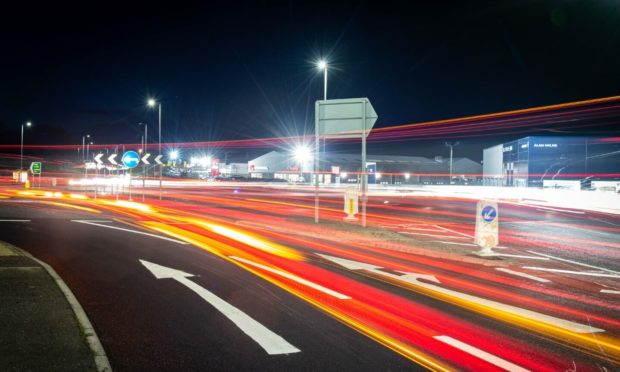What will Scottish transport look like at the end of this decade?
Very different to today, according to a landmark new report on decarbonising the sector.
The Scottish Government commissioned consultants Element Energy to analyse how transport should change if the Scottish Government is to hit its carbon emissions targets.
Transport minister Graeme Dey said the work “makes clear the scale of the challenge ahead of us.”
So what’s likely to change and when?
You won’t use a car as much as you do now in 2030
The report’s authors plot a journey between transport today and the Scotland of 2030 where the number of kilometres travelled in a car has fallen by a fifth.
That’s what needs to happen if Scotland is to hit its climate change targets.
Transport Minister Graeme Dey announces a new report on decarbonising transport in Scotland.
It sets out an independent assessment of what is required to meet our world-leading #NetZero targets.
Find out more ➡️ https://t.co/8tKCR2wxi2#LetsDoNetZero | #ScotPfG pic.twitter.com/qmG6dUEkrO
— Transport Scotland (@transcotland) September 23, 2021
The report’s authors don’t beat about the bush around the scale of the change needed either.
It will “have a major impact on the lives of everyone in Scotland,” they promise.
Electric vehicles alone are not enough
The report’s authors have a tough message for those who believe the future of private travel is a simple switch to electric (or hydrogen…) vehicles.
That won’t be enough. We need “major changes” to our behaviour too. That’s taking more buses, more trains, getting even more comfortable with Zoom and Teams calls for work, and “a significant reduction in transport demand.”
Turning to zero emission vehicles alone will “fail to meet the emission targets,” the report concludes.
Change has to be dramatic and it has to be quick
Researchers looked at four scenarios for decarbonising transport in Scotland. They ranged from a business as usual approach to a radical mix of new technologies and policies that encourage us to take fewer journeys.
Only the most radical option delivered the emissions cuts required. The other three options fell “well short” of getting the job done.
Working from home isn’t as green as you think it is
While more working from home can have a positive effect on transport emissions there remains a down side.
The report’s authors are clear there is no transport emissions panacea in the changes the pandemic has brought to many of our lives.
“This move away from urban centres will lock in car dependency and longer trip distances,” they argue.
“That’s not just for commuting trips, but for all trips, and that could potentially wipe out any benefit to overall emissions.”
That means the net emissions impact of the pandemic in 2030 could be smaller than first hoped.
No free ticket for frequent fliers and other wealthier travellers
There will be a huge focus on what policy makers are calling a ‘just transition’.
That’s not just ensuring those that work in carbon intensive industries are fairly treated, but ensuring the less well off don’t carry the can for cutting carbon as people get around.
For example, bus companies are making great strides in decarbonising while airlines are barely out of the starting blocks.
The report calls for policies to ensure these “differences in technology readiness do not lead to the poorest in society paying for the early decarbonisation of transport while richer groups do not pay the full economic cost of their pollution until much later in the transition.”
We’re going harder, faster in Scotland than the rest of the UK
The report’s authors pour cold water on the idea that enough change can come from “doing the same things differently”.
Taking the same flights to the continent, for example, but travelling on aircraft that uses more efficient fuel.
That’s a non-starter for the thinkers behind the independent report.
The consultants conclude that Scotland’s drive to slash transport emissions by at least 56% by 2030 – a more ambitious target than elsewhere in the UK – mean that changes in Scotland will be faster, more comprehensive and likely more dramatic than others seen elsewhere.

